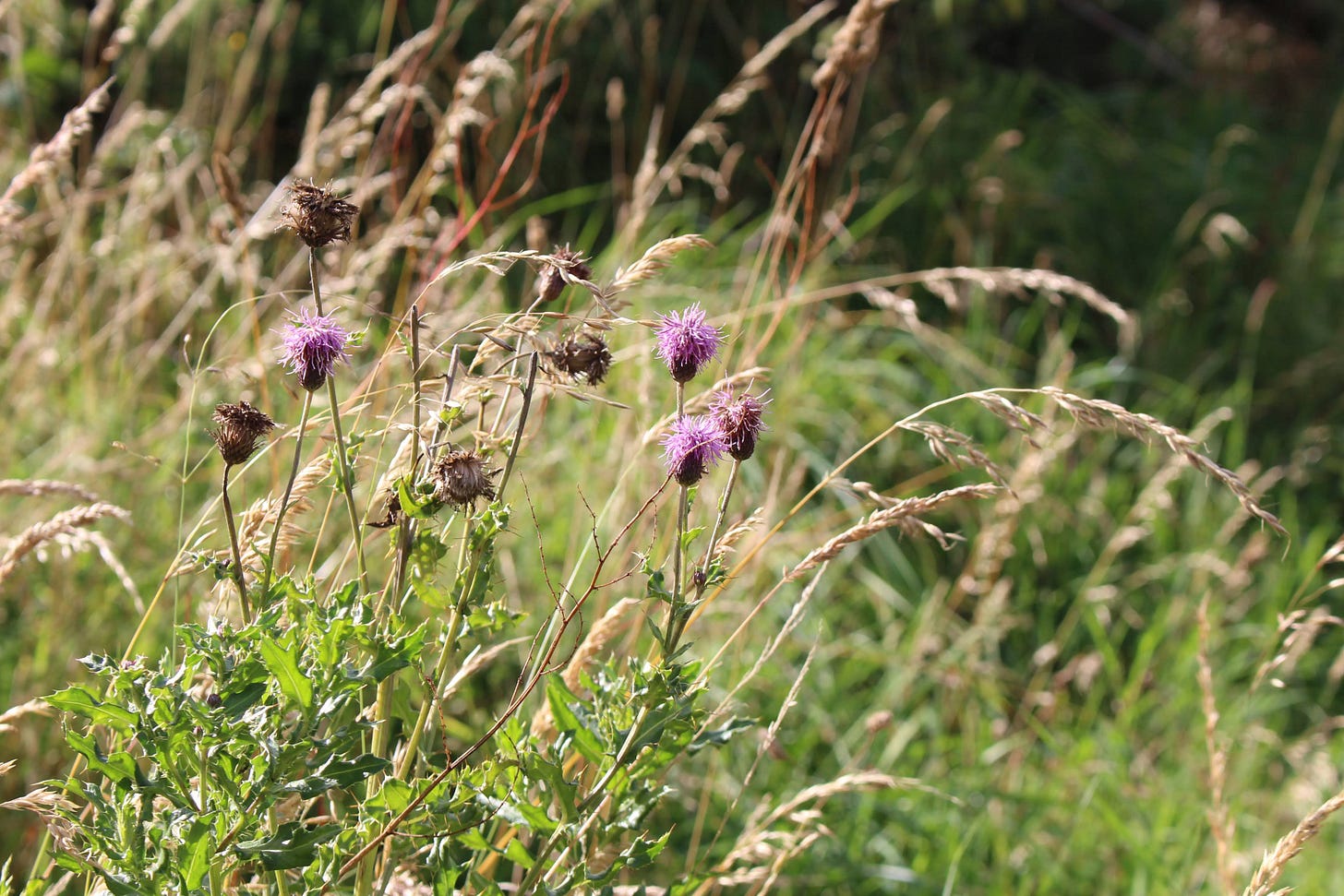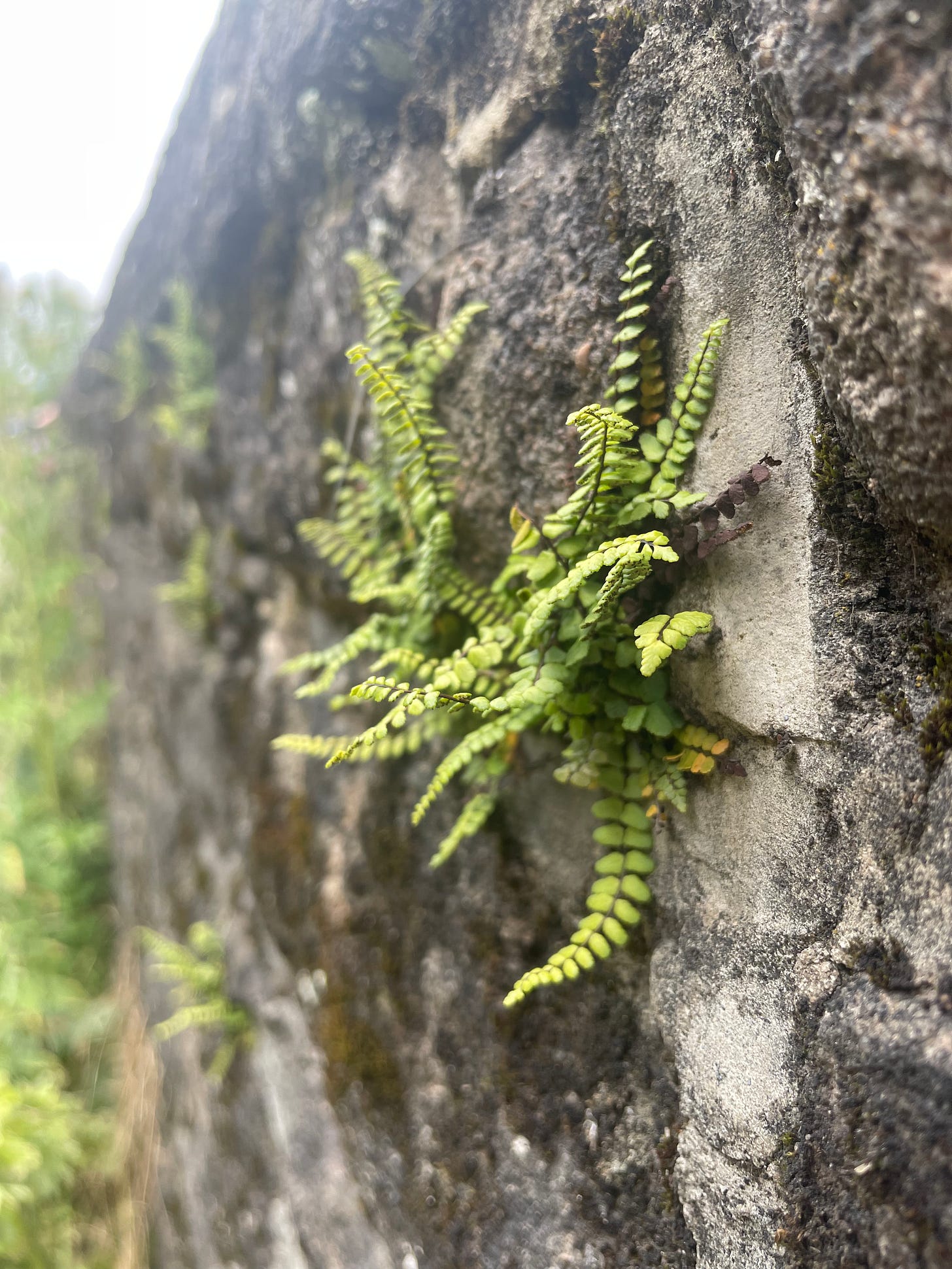What makes a weed a weed?
It's nature's way of bouncing back.
“A weed is just a plant in the wrong place.”
I’ve heard various iterations of this quote over the years, and I’ve got to say I completely agree.
The English have a bizarre obsession with weeding. A dedication to tidiness, to cleanliness, to ensuring everything is just perfect and doesn’t stray an inch from its intended location.
But there are weeds and then there are weeds. We know by now that the sterile, monocultures of perfect lawns and pristine flower beds may look handsome (if you’re into that kind of thing) but are ecologically barren. As green spaces go, the archetypal wide lawn with thin verges does absolutely nothing for nature.
Nature loves mess. It loves variety. An intricately manicured hedge is not as valuable a habitat as a thick, tangled hedge with plenty of other flowers and plants growing up through it. It provides food, shelter, and protection from predators.
Back in 2021, Plymouth County Council put a considerable amount of time, effort, and presumably money in creating a campaign to lambast weeds. They posted up a dramatic video of a team of weed-killing professionals kitting up with sprays and shovels.
To help the fight against this stubborn old enemy, we've assigned a crack team of extra staff and equipped them with mean, lean weed destruction machines.
Personally I was amazed by the devotion to the destruction of nature at the same time as the world careens into a climate and ecological crisis, and it seems like I wasn’t the only one. They were flooded with complaints, and you know your marketing campaign hasn’t gone well when it gets BBC coverage saying so.
The council doubled down on their intentions, saying that the campaign was necessary as weeds posed a “health and safety hazard” to children and old people. Now I haven’t been to Plymouth in a while, but I have a feeling that unless it’s turned into some kind of The Last Of Us-inspired post-apocalyptic jungle, that’s complete nonsense.
You may also remember that Plymouth then went on to destroy well over a hundred mature trees in the middle of the night for absolutely no reason, so I’m beginning to think that Plymouth Council just really, really hates nature.
Call me old-fashioned, but I think we should embrace life in all its diversity, and celebrate its persistence. Weeds are nature’s way of reclaiming what it has lost. Personally I find it quite reassuring that the humble dandelion is strong enough to power through concrete. That despite Plymouth’s best efforts to eradicate every trace of green from the face of the earth, the weed will always return. Dogged, silent, but ever-determined. Like a tiny green Terminator.
It’s not necessarily the intention of weeding that I object to. Obviously, if a council electrician needs to access a circuit box that is smothered by greenery, they will need to cut it back. And as the summer heat intensifies, dry bundles of weeds near electricity could act as a tinderbox just waiting to blow up.
Some invasive species like Japanese Knotweed can cause immense damage to local ecosystems and need to be controlled aggressively. But there are ways to communicate this. Dismissing all weeds as needing to be destroyed regardless sends a powerful message that can be very quickly misinterpreted and taken way too far. Can an enthusiastic landscaper tasked with making a pavement less overgrown and more wheelchair-accessible stray too far and wipe out a field of nearby flowers? Stranger things have happened, I’m sure. And if you send out a message that “all weeds are bad,” it becomes much more difficult to champion for wild green space and habitats for wildlife.
The next time you see a weed in your garden, think before you toss it away. Is it unwanted, just because you didn’t put it there? Maybe it’s providing shelter for insects, or food for a bumblebee.
Maybe it’s just nature’s way of giving you the finger.




